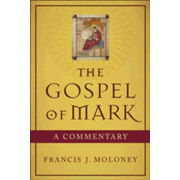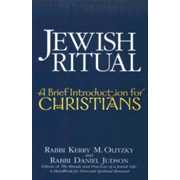OUR LECTIONARY for the Fourteenth Sunday after Pentecost comes to us selectively depending on our ecclesial walk. Different denominations present us with a variance in readings possible. Here in this study we have already dealt for several
weeks with the topical subject found in John; therefore, we choose to turn this study to
the subject now covered in Mark. For those whose lectionary calls for working with the Johannine gospel, please refer to our study for the previous week. Within that reading we historically find that during his teaching in the area around Capernaum concerning
his being the “Bread of Life”, the populace strained for understanding that would come to them only by power of the Spirit. You can access that study by clicking here...
In both texts, however, we find that Jesus and his followers quickly became confronted
by religious authorities in synagogue and temple. Here in Mark, the text used by my own North American Lutheran Church denomination, we read where some authorities rose to challenge our Lord in the name of keeping proper Jewish
traditions. We read…
Now
when the Pharisees gathered together to him, with some of the scribes, who had
come from Jerusalem, they saw that some of his disciples ate
with hands defiled, that is, unwashed. (For the Pharisees, and all the Jews, do
not eat unless they wash their hands, observing the tradition of the elders; and
when they come from the market place, they do not eat unless they purify
themselves; and there are many other traditions which they observe, the washing
of cups and pots and vessels of bronze.)
And the Pharisees and the scribes asked him,
“Why do your disciples not live according to the tradition of the elders, but
eat with hands defiled?”
And he said to them, “Well did Isaiah prophesy
of you hypocrites, as it is written..,
‘This people honors me with their lips,
but their heart is far from me;
in vain do they worship me,
teaching as doctrines the precepts of
men.’
You leave the commandment of God, and hold
fast the tradition of men.”
And he said to them, “You have a fine way of
rejecting the commandment of God, in order to keep your tradition! For Moses
said, ‘Honor your father and your mother’; and, ‘He who speaks evil of father
or mother, let him surely die’; but you say, ‘If a man tells his father or his
mother, What you would have gained from me is Corban’ (that is, given to God)… then
you no longer permit him to do anything for his father or mother, thus making
void the word of God through your tradition which you hand on. And many such
things you do.” (Mark 7:1-13)
 |
Gospel of Mark, The: A Commentary - eBook By Francis J. Moloney |
What
is Pure?
The behavior of the disciples and
others was pointed out by opponents. The disciples ate their meals without
using customary ritual washing. Therefore the Pharisees, and other legalists who
had come from Jerusalem gave rise to discussions about pure obedience to God.
For them, obedience meant strict personal adherence to the dietary traditions
that had set the Jewish people apart for centuries. Before eating, they would
perform ritual washing that “purified” that which went into their bodies. These
had been lifted very high in the few centuries before the time of Jesus birth.
However, as pointed out by adherents, the practices to which they clung had
roots in the Exodus from Egypt and the settlement of the people into the land.
These were traditional ceremonial roots that they felt set them apart as God’s chosen
people. However the problem of these traditions held up in the days of our Lord’s
ministry, lay not in the original intent of preserving a robust and healthy
nation walking before God, but that these had been boiled into an oppressive
gruel of self-justification. By a menu of strict observances, a person could…
and often would… claim righteousness before the throne of God and the company
of men.
In answering this challenge, therefore, Jesus
ladled out a bitter taste. He accused that the religious authorities had overthrown
the immutable Law of God. They had replaced divine instruction with many temporal
rules. As proof, our Lord pointed out how divine mandate was intended to
preserve proper care and respect for the elderly. The Law had long established…
“Honor
your father and your mother, that your days may be long in the land which the Lord your God gives you. (Exodus 20:12)
…
and …
“Whoever
curses his father or his mother shall be put to death. (Exodus 21:17)
Using these unchanging mandates of God's Law, Jesus explained how
the Law had been circumvented by traditions invented in the more recent days of Israel.
You see, in the time of Jesus’ ministry and later, a Jewish head of household could take those funds
which had been laid aside for his elder's care, preserving them for himself by vowing their use
for the temple. A person could thus negate his responsibilities for parental
care, while maintaining investment control of the finances. They would invest the funds, gaining interest from the principal.
 |
Jewish Ritual: A Brief Introduction for Christians By Rabbi Kerry M. Olitzky and Rabbi Daniel Judson |
What
is Holy!
In the confrontation, therefore, we see that Jesus altered
the conversation away from defending his disciples. He took rather to challenging Jewish tradition.
Our Lord rightly focused the discussion on a sinful human flaw… that of
our distorting or dismissing God's Law in order to gain
religious, financial or political advantage. Thus his admonition to the Pharisees and scribes comes through the
pen of Mark to his church. But we too must hear the truth about… “many such things you do.”
You see, this
was a message given universally to the Jews, the early church and to us as well. Mark wrote in a
time when the officials of the synagogue looked down upon those Jews and
Gentiles within the early church who did not keep to the “kosher” dietary
laws of the chosen people. Therefore the admonitions of Jesus dismissed the distracting
accusations of the synagogue legalisms. They were cast aside in
order to focus the early church’s attention more properly on sinful disobedience as
convicted by the Commandments. In this way, they saw that we all stand before the Law as
convicted. Thus we are all driven to only seek salvation through
Jesus Christ and not by what we may do. You see, thankfully we are saved only by grace through faith given
in Jesus Christ alone, and not by either adherences to paltry man-made laws that we may keep, nor the Commandments which we fail to keep. We need to understand thoroughly that no one can get to heaven
by legalisms, religious observances or the exercise of power or influence. We
are justified only by our Lord’s death upon the cross. In this way we are made witness to the
Father’s mercy through the power of the Holy Spirit.
What then is the Law? Is it no more of use? On the contrary, the Law remains before us to be used as a guide for us in dealing and living with sin in the world. It stands as testimony that demonstrates our shortcomings and human need of salvation.
Consider this!
That which is "Corban", (laid aside) is indeed our secure
salvation which is preserved for all eternity through Christ alone. For certainly Jesus willingly and exclusively paid dearly for our sinful ways and
misunderstanding. He reconciled us to the Father! We are free from the penalty of the Law, though the Law yet stands. Thanks be to God that before
dying upon the cross, our Lord clearly said… “Father.., forgive them. They know
not what they do.”
Thus it is now... as we gather at our Lord's table with unwashed, sinful hands… that we
may rejoice and eat in peace, knowing forgiveness. From that holy place we may then rise in witness and work refreshed in this sinfully confused world. Thanks be to God.
Please be invited to view these videos on the Book of Revelation...
May the Peace of God that surpasses all human understanding
keep your hearts and minds in Christ Jesus our Lord.


No comments:
Post a Comment